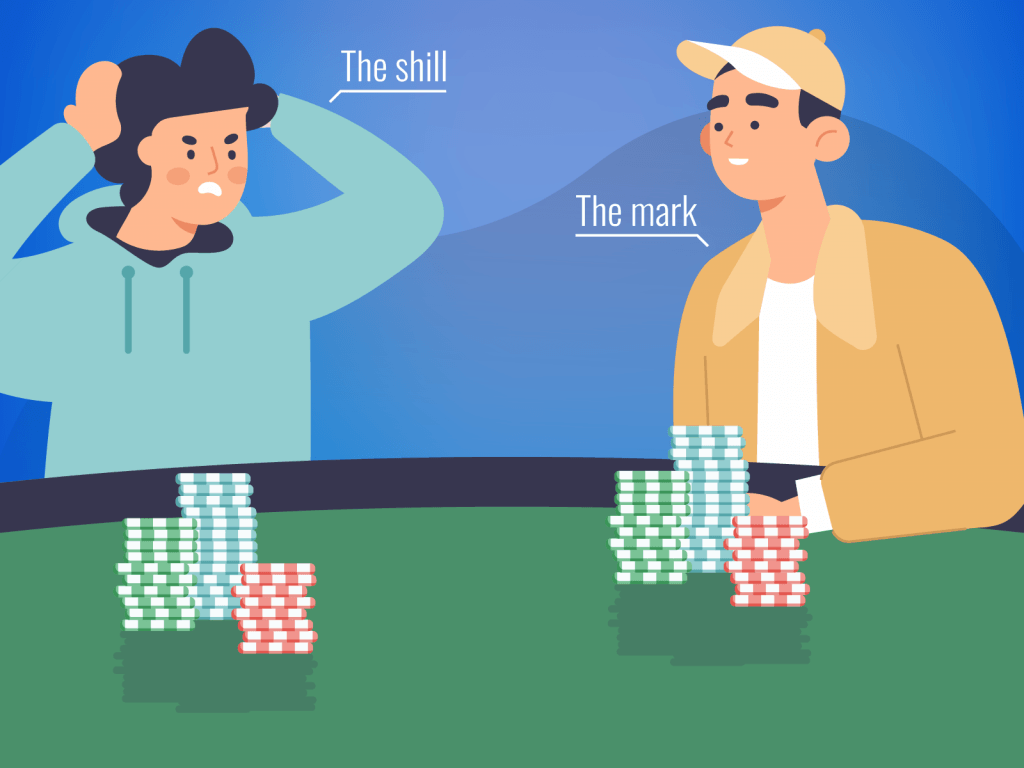
Understanding the Anatomy of the Scam
In the underbelly of Las Vegas nightlife, scams thrive, rarely standing out as outlandish or cinematic capers-instead, they often hinge on everyday exchanges, ambiguous motives, and a dash of psychological manipulation. One such con making a subtle comeback is the fake casino chip collateral scam, a scheme that leverages greed, plausible backstories, and sleight of hand to turn ordinary casino players into unsuspecting victims.
The Pitch: Recruiting Willing Participants
It all starts with an enticing offer in a private setting: seemingly reputable “businessmen” approach targeted players known to have clean casino records. They promise a tempting deal-trade authentic casino chips for more cash than their face value. For example, a $100 chip nets you $120 in cash, while trading in $1,000 brings a payout of $1,200. The pitch is always the same: easy money for minimal effort, drawing marks with built-in bonuses and little apparent risk.
Naturally, the obvious question arises: why would anyone voluntarily lose money exchanging cash for chips? The answer is cleverly crafted to fit familiar crime narratives.
Disguised Motives: Tales of Laundering and Illicit Gains
The scammers weave convincing tales of needing to launder large sums without entering the casino personally, typically involving backgrounds as mobsters, dealers with questionable loyalties, or established money launderers. The rationale? Their faces are too familiar to security, or they risk legal consequences if spotted. So, they need legitimate players to exchange high-value chips, hold onto them for a short period, then swap them back for “clean” cash at a premium.
The script continues with promises: “Bring us $10,000 in black chips each month, and we’ll swap them for untraceable cash at an unbeatable rate.” If questioned about their strategy for cashing in, scammers claim to have a network of intermediaries who handle the actual cash-outs, ensuring nothing traces back to them or the player involved.
The Bait: Setting the Scene for the Sting
Meetings are set up in secluded spots far from casinos, minimizing surveillance and removing immediate scrutiny. At such a meeting, the mark isn’t alone. Another “player”-actually part of the con-joins the scene, always with a larger stack of chips and an eagerness to participate. This confederate, or shill, not only reassures the target by showing interest in the deal but also voices doubts about the scheme’s legitimacy. Questions are raised about the authenticity of the cash and the operation’s true intentions-all designed to indirectly dispel the target’s natural skepticism.
At this point, everything resembles a legitimate transaction. However, a subtle clue emerges: the scammers dictate exactly which casinos to source the chips from, reinforcing their supposed control and trustworthiness.
The Deep Play: Manipulating Trust and Doubt

The presence of the shill intensifies the psychological pressure. The confederate’s larger stack gives them leverage in the negotiation; when the “businessman” can only pay one person, the shill insists on getting paid first, arguing that his investment is greater. This orchestrated argument tests the mark’s temperament-if the target becomes aggressive, the scammers may cut their losses and end the charade. If not, they identify an opportunity to escalate the scam, baiting the target into deeper involvement or a second, larger transaction.
The Sleight of Hand: Executing the Switch

The true trickery occurs during the exchange. The mark’s authentic chips and the shill’s counterfeit ones are counted together. Amid distractions and disputes, the scammer quietly swaps the genuine chips for fakes. Without awareness or suspicion, the mark often leaves with a stack of worthless tokens, convinced they are holding the same casino chips they arrived with.
This seamless bait-and-switch works due to the confusion created by the staged argument and the mark’s focus on the ongoing negotiation rather than the chips themselves.
Locking the Trap: The Aftermath and Exit Strategy

The next day, the deception culminates. The target receives a call from the “businessman,” accusing the mark of collaborating with the shill and supplying fake chips, flipping the narrative and victimizing the mark further. Upon inspection, the chips are discovered to be unconvincing knock-offs or obsolete house tokens with minimal value.
What’s diabolical about this conclusion? The victim is left with no avenue for recourse. Going to the authorities would expose them as willing participants in an illegal money-laundering operation. Reporting it to casino staff could lead to their own investigation or charges. The fraudsters remain in the clear, as the phony chips are never exposed at a casino’s cashier desk.
Lessons Learned: Staying Ahead of Casino Scams
At its core, the fake chip collateral scam isn’t merely a robbery-it’s a litmus test. Scammers probe to see how much confidence and greed can be exploited. If the mark proves susceptible, they’ll escalate to larger sums and riskier exchanges; if resistance is sensed, the simple sleight of hand is employed for a quick profit.
Occasionally, the con adapts: the target might be drawn into bringing even more chips for bigger scores, only for entire bags or cases to be swapped with counterfeits-sometimes outside the bar, sometimes in a car park. Some iterations feature even darker tricks, such as switching out cash for duffel bags containing tainted substances, ensuring the mark is too frightened to ever report the crime.
Ultimately, the scam’s real power is in the psychology of crime: it starts with a story that gains just enough trust from a greedy or desperate mark, and ends with the victim isolated, swindled, and unlikely to seek justice.
For anyone tempted by offers that sound too good to be legal, remember: in shark-infested waters, the allure of easy money is most often the bait.













